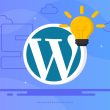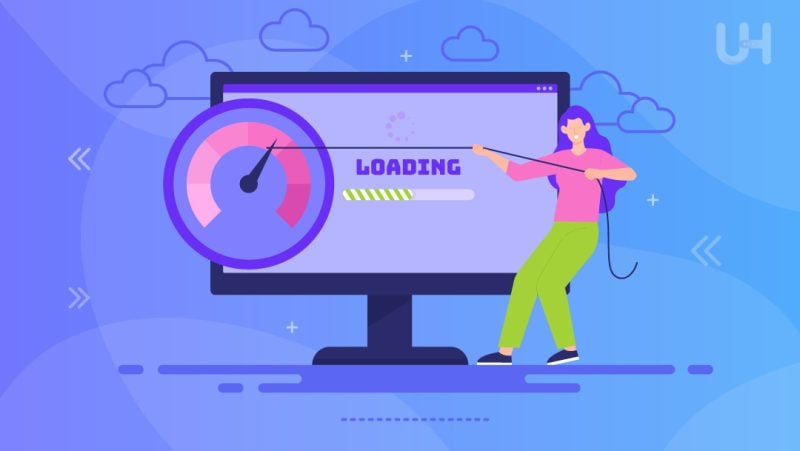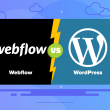Page speed is more than just a number. It’s the heartbeat of your website’s user experience and performance. Speed influences how search engines like Google view your site, potentially placing it higher in search results, which means more people can find you. But it’s not all about being found; it’s also about keeping visitors engaged. A fast-loading site encourages visitors to stay, explore, and interact, leading to a more vibrant and effective online presence. For those looking to maximize visibility, especially in the competitive online marketplace, trusting our ecommerce SEO services can be a game-changer.
Behind every swift website is a strong foundation provided by good web hosting. Think of web hosting as the land on which your website’s house is built. The quality, location, and strength of this land can greatly affect how fast your website ‘travels’ to visitors’ screens. From handling data like a pro to fending off online threats, the right web hosting can turbocharge your website, making it not just a destination but a pleasant journey for every visitor. Ensuring your site is optimized for speed with the right hosting solution is just one way our ecommerce SEO services can help you stand out and deliver a seamless user experience.
Purpose of Page Speed
Page speed influences website performance and user experience in ways including:
Ranking
Page speed impacts a website’s ranking serving as a key signal that search engines use to assess and position websites based on their performance and speed. A faster website stands chances of ranking and appearing more frequently in search results for relevant keywords thereby attracting increased organic traffic.
Engagement
Page speed also influences user engagement, with websites serving as one of the factors that users consider when interacting with sites based on their performance and overall user experience. Having a website can create an enjoyable experience, for users leading to increased engagement and retention of visitors. This in turn can help lower the bounce rate, which refers to the percentage of visitors who exit the site after viewing one page.
Conversion
The speed at which a webpage loads can impact its conversion rates since it plays a role in influencing users’ decisions to take action and make purchases on websites. A fast website offers an user experience that motivates visitors to engage with the site by subscribing, contacting or making purchases.
Besides design, content and optimization page speed is also influenced by the quality of hosting services. Web hosting provides the resources for storing and accessing websites online.
How Web Hosting Affects Page Speed?
Hosting affects page speed through factors such as:
Latency
Latency plays a crucial role in the website performance. Also, influences how quickly the server can respond and deliver content to users’ devices. The hosting setup, including server location, capacity and performance along with network factors like distance, traffic and quality all contribute to latency. Lower latency leads to faster page loading times while higher latency results in speeds.
Bandwidth
Bandwidth measures the amount of data that can be transferred from a website’s server to a user’s device within a timeframe. It directly impacts page speed by determining how quickly content can be downloaded and displayed on the users device. Hosting also influences bandwidth based on the quantity, type and quality of data that the server can provide and that the user’s device can receive. Having unlimited bandwidth can lead to quicker page loading times while a lower bandwidth may result in loading speeds.
Security
Regarding security it pertains to how well protected and secure a website’s data and transactions, from malicious access, use or changes. The level of security can impact the speed at which a website’s data and transactions are processed and verified on both the server and the user’s device. The website’s security is influenced by the quality and type of security measures and protocols on the server as well as on the user’s device. Enhanced security measures can contribute to page speeds whereas weaker security measures may lead to loading times.
How to Choose the Best Hosting for Your Website’s Page Speed SEO Factors?

Deciding on the web hosting service to enhance your websites page speed and SEO performance can prove to be a task due to the multitude of factors at play. These factors include considerations such as your website’s size, type and purpose as aspects like pricing, features, support offered by the hosting provider and aligning with your website’s objectives target audience and content.
Nevertheless opting for the web hosting service that caters to your websites page speed and SEO requirements can yield significant benefits by enhancing overall performance levels and user experience while helping you achieve your goals effectively.
To choose the best hosting for your website’s page speed SEO factors, you need to follow some steps and tips, such as:
Analyze your Website’s Needs and Requirements
Conducting an assessment of your website’s needs and specifications; Before finalizing a web hosting provider for optimizing page speed and SEO elements of your site it is crucial to evaluate its needs and requirements. This involves identifying aspects such as size, type, purpose of the website along with defining its goals target audience demographics and content strategy.
To understand and improve your website you should utilize tools, like Google Analytics, Google Search Console or Moz. These tools help you gather and analyze data to enhance your website’s performance. For instance, consider evaluating the size, type and purpose of your website. Whether it’s small, medium or large; a blog, e-commerce site or portfolio; or serves an educational or entertaining purpose. Define your goals. Target audience to tailor your content accordingly. Be it increasing traffic or conversions, building authority and trust reaching an audience or providing engaging text and media.
Compare Different Hosting Options and Features
Once you’ve assessed your website, you need to thoroughly explore hosting options to find the fit for your needs. Look for hosting services that align with your site’s needs. Can optimize page speed for improved SEO performance, in your niche.In order to make a decision, on hosting services it is advisable to utilize a variety of tools and platforms like hosting reviews, comparisons or recommendations. By comparing hosting options and features and gathering feedback you can determine the suitable choice for your website.
Consider factors such as shared server, dedicated, VPS or cloud hosting, pricing, features, support quality including latency, bandwidth, security measures, uptime reliability, speed performance and customer service. Select the option that aligns best with your website’s requirements to enhance page speed SEO aspects for performance, within your niche.
Test and Optimize your Website’s Page Speed SEO Factors
After assessing hosting options and features it’s essential to test and optimize your website’s page speed SEO elements. Evaluate how these factors impact your websites ranking,flow and authority while also examining engagement rates conversion rates and user retention rates.You should utilize tools, like Google PageSpeed Insights, GTmetrix or Pingdom to examine and enhance your websites page speed for SEO. It’s essential to gather and document the data and feedback from these tests.
For instance you can focus on elements such as latency, bandwidth and security to optimize your website’s page speed for SEO. Evaluate how these factors impact your website’s traffic, authority, engagement, conversion rates and retention. Provide insights and recommendations based on metrics to identify areas of improvement and suggest solutions.
Conclusion
Page speed refers to how a web page loads. Plays a crucial role in SEO by influencing various aspects, like ranking, user engagement and conversion rates. However the speed of a webpage is not solely dependent on the design, content or optimization of the website. It is also influenced by the hosting service, which provides the space and resources for storing and accessing the website on the internet.
Hosting can impact a web page’s speed in ways, including latency, bandwidth and security. Selecting hosting that considers SEO factors related to page speed can enhance your websites performance, user experience and help you achieve your objectives.
To make a choice regarding hosting for improving your websites page speed SEO factors you should take steps. This includes assessing your website’s needs and requirements, comparing hosting options and features available in the market as well as testing and optimizing various SEO factors related to page speed. By following these steps you can ensure that both your website and hosting deliver an experience, for users and search engines alike.
Ready to accelerate your website’s performance? Upgrade to fast VPS hosting with Ultahost and provide your visitors with lightning-fast loading times. Elevate your SEO rankings and enhance user experience today.











